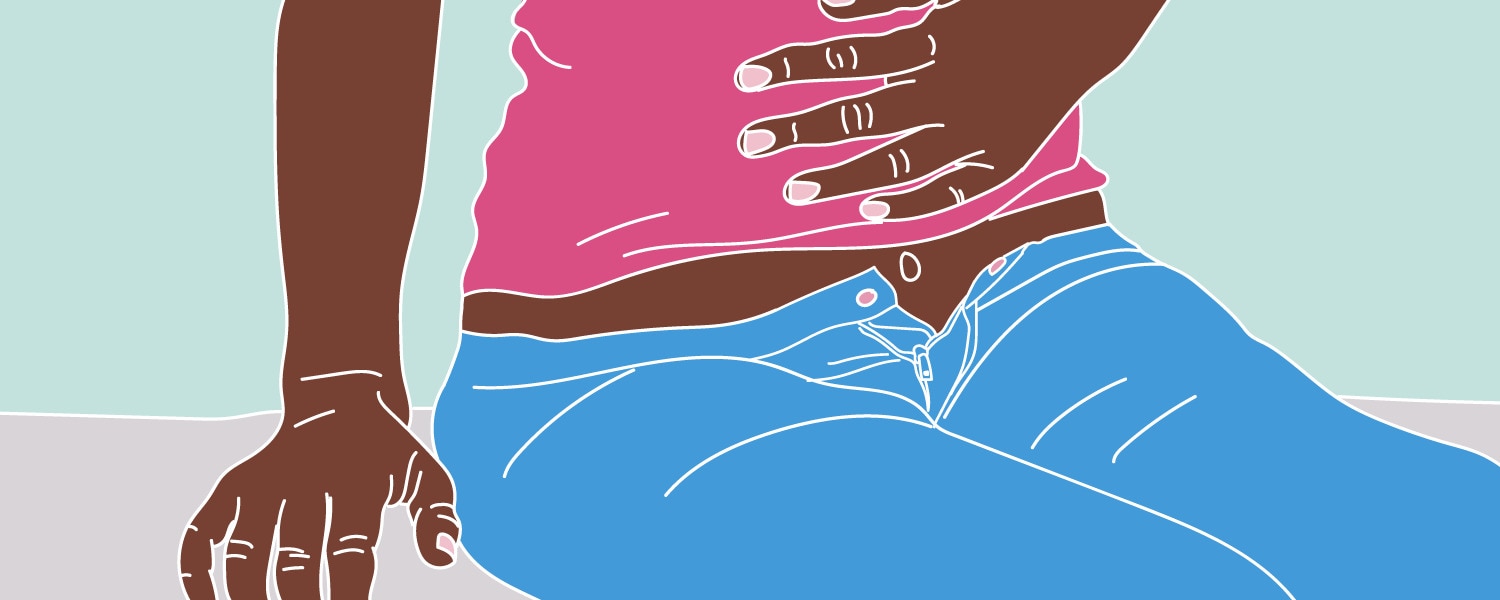What is bowel endometriosis?

You may have heard of endometriosis, but do you know what bowel endometriosis is?
Though not as common, it still affects around 12% of people with endometriosis. [1] Let’s take a closer look at some of the signs, symptoms and treatments.
Endometriosis is a chronic condition that causes tissue -- similar to the uterus lining -- to grow in places it shouldn’t. Although it has gained more awareness in the past few years, it is not commonly known that it exists in many forms. These different types are based on where the tissue grows, so as you may have guessed, bowel endometriosis takes place in the gut. [2]
Although many of us are affected by these conditions, misdiagnosis or no diagnosis is still prevalent (despite the fact that 176 million women+ are affected by endometriosis worldwide!). Knowing how to spot bowel endometriosis can help you seek the help you might need.
What are the signs and symptoms of bowel endometriosis?
If you have endometriosis (or suspect you do), then you may be wondering what the specific symptoms are for bowel endometriosis. Well, they are actually quite similar to those of other bowel-related conditions such as irritable bowel syndrome (IBS) or hemorrhoids. So much so that they are often confused or misdiagnosed – so it’s definitely worth getting a medical opinion if you notice any of these signs:
- Pain when you poop or fart. The scientific name for this is dyschezia.
- Pelvic pain during sex, also known as dyspareunia.
- Rectal bleeding – this is when blood comes out of your bum. [3]
Spotting any of this can be stressful but try to keep calm and figure out if there’s a pattern before jumping to conclusions. With bowel endometriosis, symptoms may get worse before or during your period, so keeping track of your symptoms in a diary or on your phone is a good start to finding a connection. This data will help your doctor – along with a vaginal examination or ultrasound - to diagnose you and provide you with advice and treatment.
What are the treatment options for bowel endometriosis?
Endometriosis is a chronic condition which means that although it can’t be fully cured, it is possible to treat it so you can carry on with your life. There are a few options out there:
Pain Relievers
Over-the-counter pain relievers such as paracetamol or ibuprofen can help to reduce pain caused by bowel endometriosis. Your doctor can also prescribe stronger pain relievers to help ease any discomfort.
Hormone treatments
Hormone treatments such as the contraceptive pill or an IUD (to name a couple) work by reducing or stopping ovulation, making your periods lighter and less painful.
Surgery
In some cases, surgery can be performed to remove the affected bowel area. Depending on how deep this is, there are a few different surgery options that your doctor can talk you through. [4]
It can be worrying if you are diagnosed with bowel endometriosis. However, learning more about it can help you cope. Also, sharing your feelings or having a chat with someone you trust can help you feel supported and reassured during what may be a difficult time. After all, nobody should suffer in silence. Consider talking to close friends and family or consulting your doctor for reassurance and a medical opinion. By doing this, you may discover that a lot of other people are also going through the same thing.
Saba® makes you feel #CómodaContigo.
Medical disclaimer
The medical information in this article is provided as an information resource and is not to be used or relied on for diagnostic or treatment purposes. Please consult your doctor for guidance about a specific medical condition.
[References]
[1] Habib N, Centini G, Lazzeri L, et al. Bowel Endometriosis: Current Perspectives on Diagnosis and Treatment. Int J Womens Health. 2020;12:35-47. Published 2020 Jan 29. doi:10.2147/IJWH.S190326
[2] Wolthuis AM, Meuleman C, Tomassetti C, D'Hooghe T, de Buck van Overstraeten A, D'Hoore A. Bowel endometriosis: colorectal surgeon's perspective in a multidisciplinary surgical team. World J Gastroenterol. 2014;20(42):15616-15623. doi:10.3748/wjg.v20.i42.15616
[3] https://www.endometriosis-uk.org/endometriosis-and-bowel
[4] https://www.chelwest.nhs.uk/your-visit/patient-leaflets/medicine-services/bowel-endometriosis